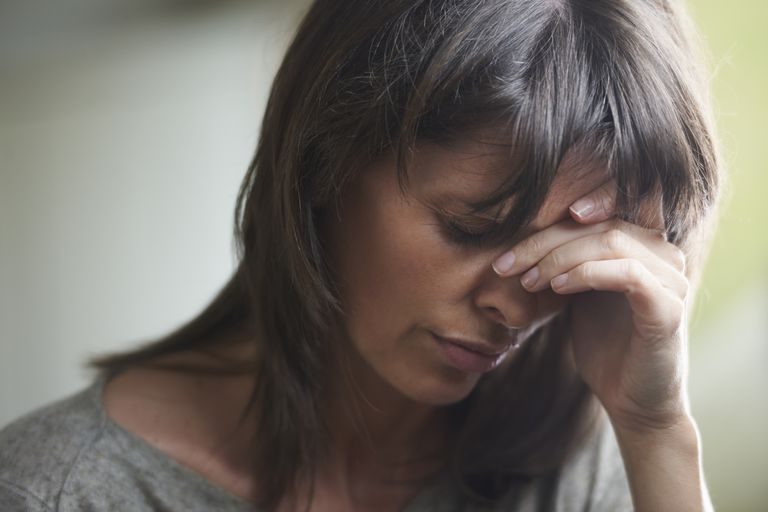Contrary to what many people believe, clinical depression is not about an individual feeling unhappy or unwell from time to time. According to Dr. Maninderpal Singh Dhillon, an experienced psychiatrist who works with adult patients experiencing a range of mental health conditions such as depression, anxiety, panic disorders, bipolar disorders, psychosis, PTSD and ADHD, clinical depression is a complex and often debilitating mood disorder that can be caused by multiple factors, including (but not limited to) genetic predisposition, stress, anxiety, personality disorders, and brain chemistry.
Symptoms of Depression
Another reason why clinical depression remains so widely misunderstood — and in some cases, with catastrophic and tragic consequences — is confusion, or rather stereotypes, regarding symptoms. For example, many people that the only legitimate symptoms are mental when in truth there is a wide range of physical symptoms as well. Unfortunately, there is no one set of symptoms that are universal for depression, as different forms of depression all have their own unique symptoms that an individual may face such as appetite changes and paranoia. This is an ongoing problem that psychiatrists such as Dr. Maninderpal Dhillon are readily familiar with.
“Because our society still treats mental illness as taboo, there is a great deal of misinformation and misunderstanding regarding the symptoms of clinical depression,” commented Dr. Maninderpal Dhillon. “In truth, there are multiple mental and physical symptoms of clinical depression that can be experienced and perceived with varying degrees of intensity and frequency depending on the individual in question. These symptoms include, but are not limited to sleep problems, chest pains, sadness, irritability, concentration problems, fatigue, loss of energy, loss of appetite or other changes in eating habits, joint pains and muscle aches, headaches, digestive problems, back pain, restlessness, agitation, sexual problems, and more. In addition, these symptoms may exist simultaneously, and they may exacerbate each other. For example, someone who is not getting enough sleep due to depression may develop chest pains and back pains, which makes it even more difficult to fall asleep.”
Psychotic Depression
Dr. Maninderpal Dhillon explains that about one-fourth of the people who are admitted to the hospital for depression suffer from psychotic depression. This occurs when depression exists simultaneously with a transient mental state that is marked by delusions, hallucinations, paranoia, extreme anxiety, or other abnormal perceptions. These are typical of a very dark and nihilistic nature. For example, despite having no basis, a person may legitimately believe that they have a fatal and untreatable disease, or that they had a conversation on the phone with their investment advisor who told them that they lost all their money. The suicide rate for people suffering from psychotic depression is much higher than for those suffering from clinical depression without psychosis.
Dysthymia
Another type of clinical depression is dysthymia, which is also known as persistent depressive disorder. Unlike a disorder such as psychotic depression, people who suffer from dysthymia experience ongoing, persistent depression-related systems that do not render them incapacitated, but nevertheless diminish virtually every aspect of their quality of life.
Dr. Maninderpal Dhillon explains that many people who are afflicted with dysthymia suffer for many years, and even for decades with the disease. For example, due to severe workplace stress and anxiety — which is on the rise — they may develop problems sleeping or eating, or they may cultivate feelings of shame and self-loathing that, if left unaddressed and untreated, can turn into thoughts of contemplating harm to oneself or to others. It’s vital for people to understand that while it’s normal to occasionally feel sad or have periods of low energy or restlessness if the symptoms persist then they need to consult a professional health care provider.
Major Clinical Depression
Dr. Maninderpal Dhillon states that major depression is one of the largest forms of depression currently and also one that has the largest impact on younger generations. In fact, a study by researchers at Columbia University’s Mailman School of Public Health found that between 2005-2015, depression among people aged 12-17 increased from 8.7 percent to 12.7 percent — the highest jump of any age cohort in the study. The researchers also found that, overall, depression was most common among people with the least access to any health care, including psychiatrists, therapists, and other mental health professionals.
However, the good news is that a growing number of FDA-approved medications are available — such as selective serotonin reuptake inhibitors (SSRIs), serotonin-norepinephrine reuptake inhibitors (SNRIs), and tricyclic antidepressants — as well as proven treatment modalities and methods such as psychotherapy, which in some cases may (and with the patient’s permission), involve other individuals such as family members, friends and caregivers.
Dr. Maninderpal Dhillon concludes that many people who suffer from clinical depression, or who have a loved one who is afflicted with clinical depression, mistakenly believe that there is nothing that can be done. However, this is yet another myth that must be eliminated. The outlook for people with clinical depression is very positive if they are properly diagnosed by a trained health care professional, and that they receive the proper information, advice and treatment in a timely manner.

